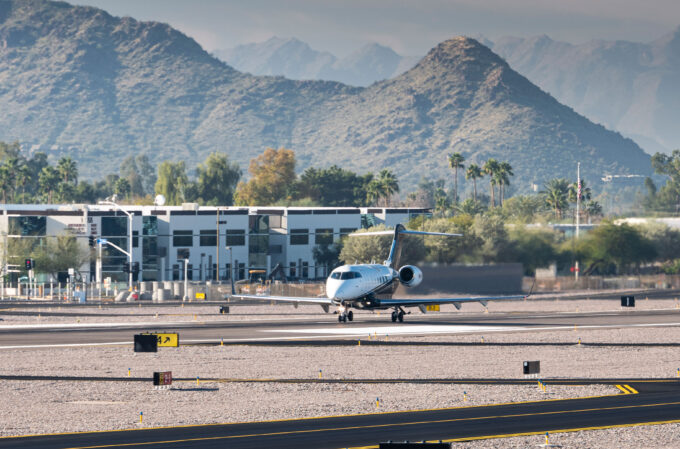May 3, 2023
Maintaining the highest safety standards amid increasing operations will be top of mind as business aviation professionals gather in New Orleans May 9-10 for the Flight Safety Foundation’s (FSF) 68th Business Aviation Safety Summit (BASS).
“Things are changing. Our industry has been transformed in many, many ways, including changes in the workforce, new markets development and now travel demand is back up,” said foundation President and CEO Dr. Hasan Shahidi. “It’s more important than ever to be vigilant about safety [in order] to maintain the level of safety that we’ve enjoyed.”
Shahidi pointed to the foundation’s seminal document on mental health initiatives, “An Aviation Professional’s Guide to Wellbeing,” published in 2020 at the vanguard of the pandemic. “We are making wellbeing an organic part of our outreach. We are advocating that it shouldn’t be a taboo topic any longer,” he said.
NBAA COO Joins Safety Panel
Chris Rocheleau, NBAA chief operations officer and a 22-year veteran of the FAA, is scheduled to share his perspective at BASS as part of an executive panel on safety challenges facing the business sector.
“The aviation industry has come roaring back from the pandemic,” said Rocheleau. An important factor to always keep in mind in the safety business is that complacency is our enemy, while vigilance is our responsibility.”
Sessions at BASS include deep dives into lessons learned from runway incursions and excursions. When asked about the recent spate of serious runway incursions at several airports across the U.S., Rocheleau said, “I think there’s certainly a heightened sense of awareness of incidents in the system. People are rebuilding their muscle memory while managing an increase in flight operations.”
On another issue that will be top of mind at the summit – mental health – Rocheleau said overall awareness is improving. “One of the more positive developments is that they are taking mental health issues more seriously with people voluntarily reporting and seeking assistance when they’re stressed or not focused on what needs to be done to operate safely,” said Rocheleau.
Doug Carr, NBAA senior vice president, safety, security, sustainability and international operations, also will be participating in BASS 2023, which is organized by the foundation in partnership with NBAA. Carr will join an expert panel discussion titled “Safety Management Systems: How They Can and Are Working for Business Aviation.” The topic is timely in light of the FAA NPRM to expand SMS mandates beyond airlines to many business aviation operators.

A ‘Unique Time in History’
A solid leadoff hitter is critical to the success of any summit. That may be one reason why the FSF chose Tony Kern as this year’s keynote speaker. Kern, a retired U.S. Air Force pilot, is president and CEO of Convergent Performance, the human reliability company. He believes strange things are happening in aviation.
“We are going through the largest generational handoff, not just in aviation history, but industrial history,” Kern said. He cited many reasons behind the shift including the bump to the pilot age limit, the pandemic, terrorist attacks, the 2008 recession, fuel prices, furloughs and more.
“So now we have many young and old people, but no middle group. We have new left-seaters in wide-body aircraft who, five years ago, would have needed six or seven years more experience to even bid those seats. There’s this giant sucking sound moving people up and around in the industry very, very rapidly with new roles and new responsibilities,” said Kern.
He also plans to use his keynote address to talk about aging technology such as the ASDE-X radar at Los Angeles International Airport (LAX) that Kern said has been broken 163 days over the past three years due to a lack of parts.
Kern believes everyone needs to be psychologically stronger, too. “People are more distracted, less focused, as well as cranky, angry, disruptive, even combative,” he said. “Many of them are pulling back inside their shell and hunkering down and still trying to grind it out. We need to figure out a way to reach the people who will never cross the threshold to ask for help. The FAA should mandate psychological strength training for all pilots and air traffic controllers as well as getting the mental health, preventative and restorative processes in place before anybody needs them.”
Young people won’t jeopardize their new careers by admitting they’re struggling, Kern said. Neither will older aviation workers who only have a few years until retirement, he added.
“Indeed, this is a very, very unique time in history.”



 International Business Aviation Council Ltd.
International Business Aviation Council Ltd.